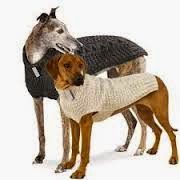One of the most anticipated parts of getting a new dog is giving it a name. You spend a lot of time thinking about a unique dog name. You can always go for the common names such as Max, Buddy, Lady, Sam, Lucy and others. The problem with choosing a common name for your dog is that when you are in a park there will be several dogs there with the same name as your dog. This is why it is better to go for unique dog names.
A unique way to name your dog is to name him or her after your favorite character from a book or movie. Unique male dog names would be Hercules after a mythological character, Mustang after your favorite car or the name of the lead star of your favorite show on television. For unique female dog names, you can name your dog after your favorite fairytale character or after the heroine from a novel or movie.
When thinking of unique dog names, you also have to make sure that the name suits your dog. Do not go overboard in making a unique name even if it does not suit the personality and appearance of your dog. In as much as you want to pick a unique name, you also have to make sure that it is a good one because it will be your dog's name for life.
It is also important to make sure that you pick dog names that you will be comfortable using. You want to be able to call out your dog in a huge crowd and not get embarrassed about it. This is why you should avoid using novelty dog names. They may sound fun and interesting, but you may feel embarrassed about calling out your dog in public.
A useful tip for picking unique dog names is to wait for a few days after bringing home your dog. It is a lot easier to observe your dog at home. Look for characteristics that will serve as your inspiration in naming your dog. If your dog loves to run around really fast, then you can name him Speedy. If he loves to chew on things like a rat then you can call him Mickey. It would be fun telling your friends how your dog got his or her name.
The internet is a great place to search for unique dog names. You can browse through a long list of names on various websites and choose several options. Once you have made a list of possible names for your dog, it is also important to try each one out. Say the name out loud and see if it sounds silly or not. You can also try to call out the dog with the name and see if he likes it. Your dog may remain aloof as you try out the names and then suddenly raise his head or wag his tail as you call out a name. That is a great sign that your dog loves that name. It is his name after all, so it is also important that he likes it.






























